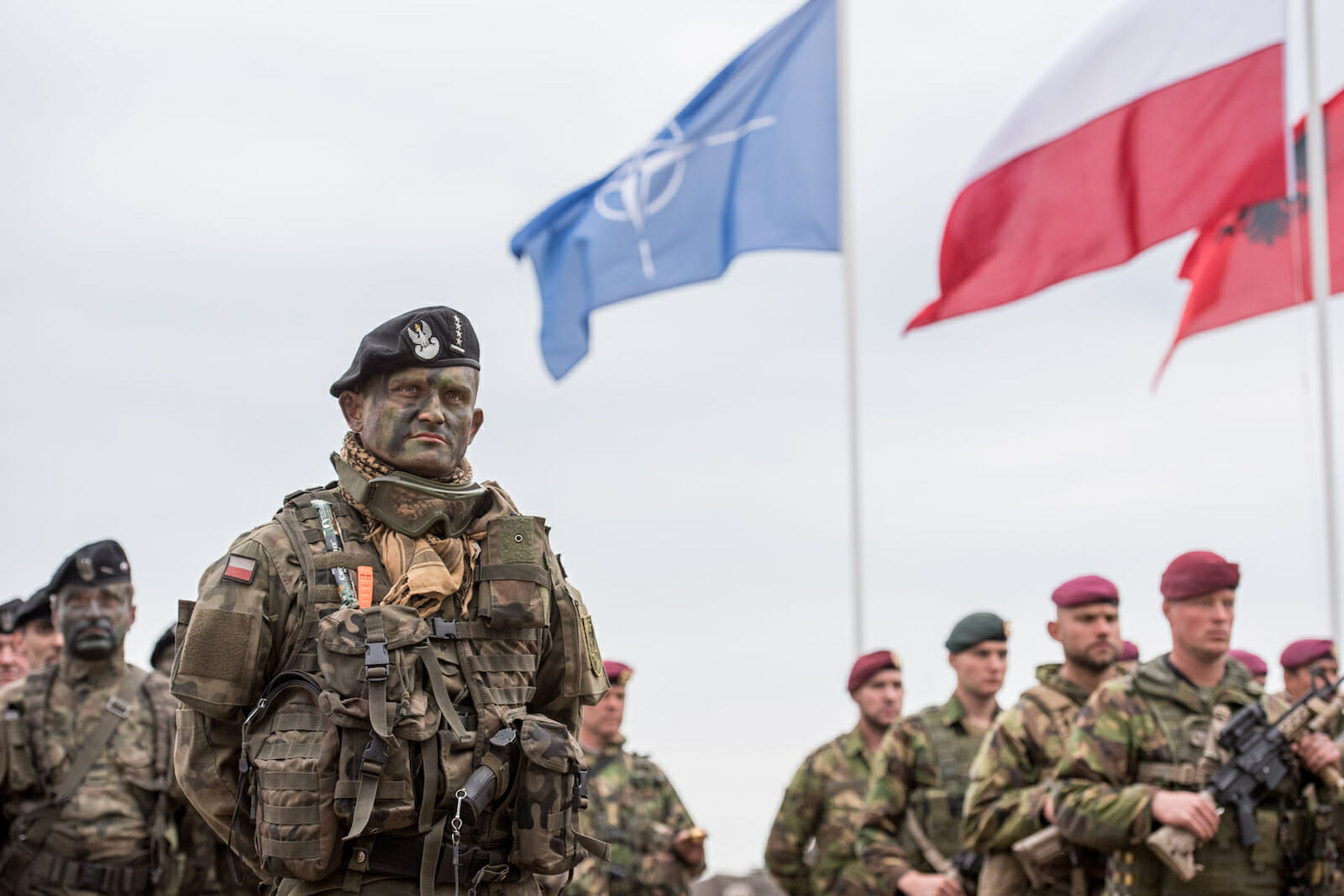
The End of NATO?
NATO was founded in April of 1949. NATO was formed as a counterweight to the growing political and military power of the then Soviet Union. From 1949 until the fall of the Soviet Union, the purpose of NATO had been to prevent an invasion of Western Europe by the Soviet Union. With the collapse of the Soviet Union in October of 1991 the rationale behind NATO rendered the organization moot. Yet, like all large bureaucracies, NATO lived on.
The main impetus that the United States became involved in NATO had been the threat of communism. With the collapse of the Soviet Union, and the subsequent fall of communism worldwide as a threat against the capitalistic United States, the new economic, political and military situation no longer justifies the expenditure of funds and military resources by the United States as was necessary during the Cold War.
In 1949 the United States identified its economic, political and national security interests as being aligned with Europe. It’s 2020 and the interests of the United States are not so much in Europe anymore. The United States, since the Obama administration, has been diverting its attention and military resources to Asia and its concern with the rise of China. With the political and economic independence of Europe no longer being such a chief concern of the United States, the eventual withdrawal of the United States from NATO is only a matter of time. Indeed, Europe is looked upon in many quarters in the United States more as a competitor than as an ally.
The economic, political and national security interests of Europe and the United States are no longer the same.
Since the fall of the Soviet Union, NATO has been in search of a reason for its existence. The terrorist attack on the United States on September 11, 2001, for a time, gave the organization a new lease on life, but with the United States coming to an agreement with the Taliban, this reason will soon be gone as well. With the United States becoming increasingly preoccupied with China, there is a growing feeling in the Trump administration that NATO is no longer a burden the United States should have to bear.
There are several reasons that NATO is breaking down. The United States has become increasingly exasperated by the refusal of the majority of NATO countries to shoulder their fair share of the economic burden of NATO. Each NATO member is required to contribute a minimum of 2 percent per annum to the NATO budget. Yet, since the end of the Cold War many nations have failed to contribute the two percent requirement, with only seven of the twenty-nine members meeting this requirement. In 2019, France only contributed 1.82 percent of its GDP, with Germany coming in at 1.23 percent, which is virtually unchanged since 2014. The United States has long complained of the European members of NATO not meeting their financial obligations, but the Trump administration has gone further than complain. The Trump administration has reduced the contributions of the United States to the level of contributions made by Germany. President Trump has made no secret of his belief that NATO is no longer a viable entity and his belief that the United States should withdraw from the alliance.
The ongoing controversy of Europe allowing the Chinese telecom giant Huawei to build a 5G network in Europe has also increased tensions between the United States and Europe. The United States and China have begun a geopolitical war, with both sides jockeying for advantage on the world scene. Huawei, which has over $75 billion in subsidies from the Chinese government, has been accused by the United States of being an agent for Chinese intelligence and has installed spyware in its equipment which would allow Chinese intelligence of obtaining crucial technology by stealth, and to obtain human intelligence on all users of Huawei technology. Europe, despite strong pressure from the United States, has moved forward in allowing Huawei to develop 5G technology in Europe. France has gone so far as to allow Huawei to establish a manufacturing plant in France.
Russia has begun construction on the Nord Stream gas pipeline which will carry natural gas from Russia to Europe. With Europe already receiving 40 percent of its natural gas from Russia, the United States is concerned that too much reliance on this energy source would leave Europe subject to geopolitical pressure in any confrontation between Russia and the West. While Nord Stream Two is currently on hold due to economic pressure from the United States, eventually this natural gas pipeline will be finished, and the amount of natural gas exports from Russia to Europe will double. Russia expects to finish Nord Stream Two in the first quarter of 2021.
In an ominous sign of the differences between the main powers of the EU and the United States, both France and Germany ruled out purchasing the American made F-35 to replace the aging European fighter, the Tornado.
With the United States withdrawing from being the policeman of the world commons, and its determination to pivot from Europe to Asia, the alliance which has lasted since 1949, is coming to an end. The United States under the Trump administration does not consider the alliance to be in the economic, political or national security interests of the United States. There have been rumors that if President Trump is re-elected than the United States will withdraw from NATO in the early stages of a second Trump term.
